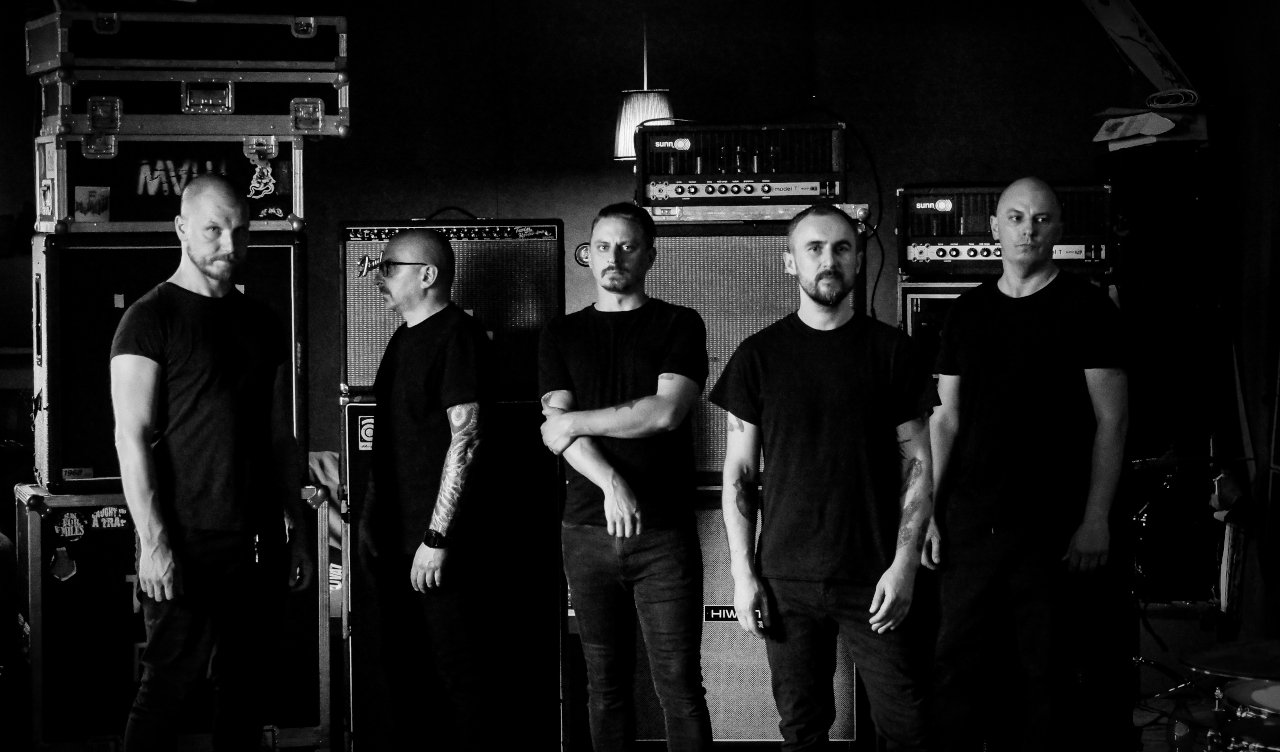To my shame I have to admit that my knowledge of Polish metal bands (which is actually knowing that Behemoth, Batushka, Decapitated, and Vader exist, and having heard a song or two) is as limited as my knowledge of the country itself; one thing I do know, is that they have their own black metal scene that is distinct enough from the Norwegian/Scandinavian side of the sub-genre, at least amongst black metal fans. Fitting then, that my first considered venture into the country’s metal music is THAW, who, amongst many labels, have been referred to as post-black metal and indeed black metal.
Formed in 2010 in the industrial city county of Sosnowiec, its chief songwriter is guitarist Artur Rumiński, with the rest of the band being rounded out by Krzysztof Kurek also on guitars, Maciej Śmigrodzki on bass and vocals, Michał Leks on drums, and Haldor Grunberg credited for ‘Noise’ (which I love). While the band began with a more straightforward black metal sound, they have over time incorporated aspects of industrial, doom, sludge, and noise. Fading Backwards represents their fifth full-length release since their self-titled debut in 2013. How does it stack up? Let’s dive in.
The more noise leanings of THAW‘s sound are prevalent right from the opening seconds of the record, with “The Great Devourer” beginning with what sounds like an air-raid siren before they slam down a blackened doom riff, replete with lawnmower guitars, and pounding industrial beats – with any apparent coldness tempered by a dense bass tone. As the song progresses there’s an almost operatic or theatrical feeling to it carried by the vocals, and emphasised by the way the track has distinct acts, as it were. Either way, a good foot to put forward to set the tone of the record to come.
“A Place Where Repetition Dwells” opens with some subdued guitar that is merely a calm before the storm of blast beats and heavily distorted vocals that almost feel like a curse being howled through all manner of electronics at the listener. The blasts gradually fade (ha!) and give way to electronic beats that pulse like a heart about to burst out of someone’s chest, with the back end of the track morphing into a more doomy stomping dirge. Frantic, dirty, nasty, and loud – just the way I like it.
“Wartenberg Wheel” begins with a more measured drumbeat underscored with a synthesised pulse, and then some of the lighter, more pensive, almost post-metal-like guitar. For someone who prefers things on the slower side, this track really resonated with me.
“In the Laughter and the Stride” employs frantic drumming mixed with some industrial, effects-heavy vocals that shouldn’t work together but do, the end result being something like having your sleep disturbed by a jackhammer right outside your window, only you find the sound oddly enjoyable.
“Dissociate Me/Spreader Bar” demonstrates THAW‘s ability to wield blackened-sludge-doom and industrial noise as one, with modulated droning guitar and driving bass and beats opening the song with a sense of marching menace. While the band like to make their way through different movements in each track, this one feels more on the consistent side than the others on the record, if only by a hair.
Album closer “Moral Justification of Selfishness” is a dichotomous behemoth – taking the furious guitars of black metal, the funerary stomp of doom drumming, and encasing it all in a wall-of-sound of noise and industrial modulation, replete with beastly vocals howling throughout. The sound here is colossal, and takes the record out on a high as opposed to acting as some kind of endurance test.
Not to compare apples to oranges (but I’m absolutely about to), but when I was done with my multiple listens to Fading Backwards, I found myself thinking about Oranssi Pazuzu‘s recent album Muuntautuja. While it was another black metal-adjacent album rife with experimentation and my experience overall was one of excitement at not having heard something specifically of that sound, at the same time the momentum of the record felt like it ground to a halt on the final track, “Vierivä Usva”. THAW, on the other hand, nailed the landing; Fading Backwards stands as a black metal-adjacent album rife with experimentation that while not totally unfamiliar in tone and style to me, had a far stronger sense of cohesion across all of its tracks in spite of its separate elements, making it an absolute pleasure to take in as a first proper introduction to the artistry a Polish metal act is capable of producing.






